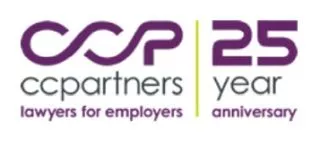Earlier this year, the government of Canada officially passed legislation establishing a new federal statutory holiday entitled, The National Day for Truth and Reconciliation to be observed annually on September 30, beginning in 2021.
Background
The formation of this national holiday is in response to the 80th Call to Action in the Truth and Reconciliation Commission report. In a news release, the government of Canada indicated that, "the day has been created to give everyone an opportunity to recognize and commemorate the legacy of residential schools" – which more than 150,000 First Nations, Metis and Inuit children were forced to attend between the 1830s and 1997. This date coincides with Orange Shirt Day, which began in 2013 and involved wearing orange shirts to honour Indigenous children forced to leave their families to attend residential schools.
Which Employees are Impacted by this New Holiday?
Federal Employees
As a federal statutory holiday, September 30 will now be a designated paid holiday for federally-regulated employees, including public and private sector employers who are subject to the Canada Labour Code. Accordingly, this applies to all individuals who work directly for the federal government or in industries relating to: air transport, broadcasting, banking, postal service or rail transport, among various others.
Provincial Employees
The federal government has left it up to the respective provincial and territorial governments to decide whether to follow the federal government's lead and recognize The National Day for Truth and Reconciliation as a statutory holiday within their jurisdiction.
To date, the response from representatives within the provinces and territories has been varied. However, their respective responses generally fall within three defined categories, which will be elaborated on further below:
- Mixed or Partial Recognition;
- Will Not Recognize; or
- Unsure.
1. MIXED OR PARTIAL RECOGNITION
British Columbia
The government of British Columbia announced that it would honour the holiday for all public-sector employees, advising these employers to provide the day off to their employees as obliged to in union collective agreements. However, private sector employers under the province's Employment Standards Act, will not be impacted by this new holiday.
Manitoba
The government of Manitoba announced that September 30 will not be recognized as a statutory holiday – however, it will be formally recognized as a "day of observance" throughout the province. This effectively means that employees at provincial government offices, public schools and regulated child care will be given the day off. However, private sector employers will not be obligated to follow suit.
New Brunswick
While New Brunswick Premier Blaine Higgs urged his constituents to use September 30 as a day to reflect and "consider what each of us can do as individuals to advance reconciliation", he confirmed that it will not enshrined as a statutory holiday in the province. However, the province's largest city, Moncton, has unanimously voted to make September 30 a municipal holiday for all city employees.
Northwest Territories
Similar to the approach taken by British Columbia and Manitoba, the government of the Northwest Territories announced that the holiday will be observed by employees of both the federal and territorial governments starting this year, and will be observed annually moving forward. This move will impact all public servants working in the Northwest Territories, including teachers. However, the province's employment legislation has not been amended to introduce a new statutory holiday and, as such, private sector employees will not be entitled to it.
Nova Scotia
The government of Nova Scotia confirmed that it will recognize September 30 as an annual provincial holiday beginning in 2021. Accordingly, provincial government offices, public schools and regulated child care will be closed. However, again, private businesses will have the choice to remain open.
Saskatchewan
The government of Saskatchewan confirmed that they will not be observing the new statutory holiday throughout the province. However, the University of Saskatchewan and cities of Saskatoon and Regina have announced that they will recognize September 30 as a paid statutory holiday for all City employees.
Yukon
The government of Yukon announced that it will recognize September 30 as a holiday for all provincial government employees and confirmed that schools will be closed across the territory. As with many of the foregoing provinces and territories, Yukon did not make mention of amending their employment legislation. As such, private sector employees will likely be excluded from this holiday.
2. WILL NOT RECOGNIZE
Alberta
The Government of Alberta has recently indicated that they "encourage all Albertans to reflect on the legacy of residential schools" and will lower flags on Alberta government buildings on September 30. However, it is leaving the implementation of the statutory holiday up to the discretion of individual employers in provincially-regulated industries.
Quebec
In quite possibly the harshest response to the new holiday, Quebec Premier François Legault unequivocally advised reporters that the province has enough statutory holidays and the government is not interested in adding another – no matter the reason.
3. UNSURE
Ontario
The government of Ontario recently shared that it still has not decided how to commemorate the federally holiday and whether or not it will mark the day as an official provincial statutory holiday.
Nunavut, Newfoundland and Labrador & Prince Edward Island
The provincial governments of Nunavut, Newfoundland and Labrador & Prince Edward Island have yet to release statements regarding whether they will, or will not recognize the new statutory holiday.
Conclusion
More than 6000 children are believed to have died while attending the residential schools that functioned throughout Canada for over 150 years. As such, establishing a day to honour and commemorate those who have fallen, as well as survivors and their families, represents an important step for Canada and a vital component of the reconciliation process.
However, many believe that the full effect of this holiday will not be felt due to the provinces' collective resistance to recognizing September 30 as a statutory holiday within their respective jurisdictions. This has understandably drawn the ire of various Indigenous communities and will likely remain a point of contention in the coming years.
The content of this article is intended to provide a general guide to the subject matter. Specialist advice should be sought about your specific circumstances.

